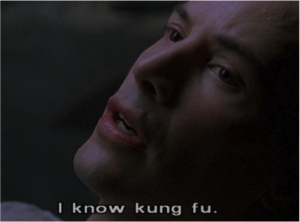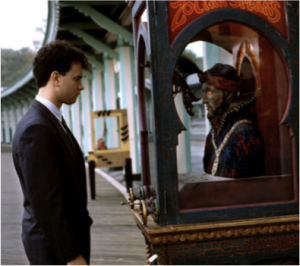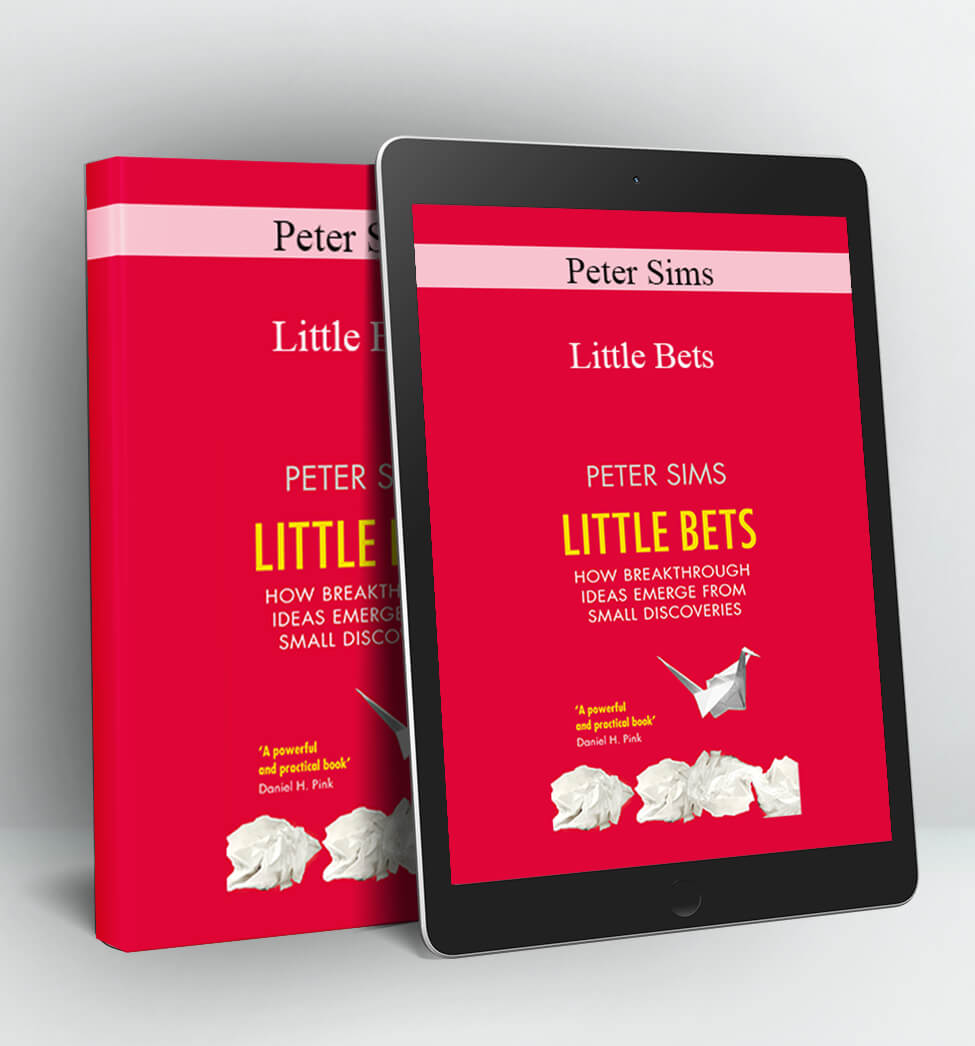Little Bets – Peter Sims
Little Bets
These days, Google has no trouble generating billions in profits.
It handles 100 billion searches a month, giving it a 69% share of the incredibly profitable search engine market. But how did they achieve such success?
Not by making a huge bet, says Peter Sims, author of Little Bets: How Breakthrough Ideas Emerge from Small Discoveries.
If Google had tried to make a huge bet, they would never have hit jackpot.
“It was a series of [small] experiments that really helped Google to invent a totally amazing business model, which kind of depended on a few key insights,” says Peter.
In his Mixergy course, Peter shows you how to use little bets in your own business. Here are three strategies you’ll learn in the course.
1. Learn Fast

You have a prototype, but it ain’t pretty.
“The fear that everyone has is that, oh my God, we put a piece of cardboard and duct tape in front of a customer, and they’re going to judge us,” says Peter.
And even “established companies are very afraid to do stuff like this,” he says.
So what should you do with your ugly prototype?
Show them version 1.0
Use those cheap prototypes to learn fast and fail quickly.
Even big, risk-averse companies like Proctor & Gamble have learned that when they show “early adopters a prototype that’s made of cardboard and duct tape early, the customers are really happy to engage in that creative process with P&G,” says Peter. “The reality is that people actually appreciate that and want to get engaged.”
Plus, when you show users a cheap and quick prototype, you aren’t too invested in the your idea yet. “Therefore, [you’re] very open to the insights that come back to [you] from users.”
2. Don’t Bet Big Based on What You Might Gain

When HP created their first scientific calculator, no one thought there was a market for it.
“At the time when it came out, early 1970s, it was priced at the equivalent of $2,000 in today’s terms,” says Peter.
And since most people were still using cheap slide rules, moving to a $2,000 scientific calculator was a big leap.
“The traditional way we’re taught to think about this problem is think about market size and [do] market research,” says Peter. “And so when HP did that, they found the answer was no, nobody’s going to buy this.”
But Bill Hewlett has just come back from a trip. “He…had been sitting next to a guy, just a random dude on a plane, and the guy had said to him after taking a look at this prototype of the HP-35 and hearing the pricing and everything else, he said, ‘You know, I’d buy one,’” says Peter. “Hewlett had only that insight and only his own instincts to go on.”
So when market research says one thing, and your gut says another, what should you do?
Focus on affordable losses
Bet what you can afford to lose.
Hewlett decided to build just 1,000 calculators. “It was something that was achievable for them,” says Peter. “It was also an affordable loss. They could afford to lose on 1,000 calculators.”
Not only did they sell those 1,000 calculators, but within just five months, they were selling 1,000 per day.
“Think about what you can afford to lose when you’re doing something new, and use that as the analytical framework,” says Peter. “It frees you up to be a lot more unpredictable or a lot more creative.”
3. Make Sure You’re On the Right Path

Pixar was founded by an animator who was fired from Disney and a technologist who didn’t know anything about making films.
Their dream was to make a major, full-length animated movie.
“There was no technology to support this idea,” says Peter. “No storytelling capacity on
the digital side to support the idea. They didn’t know anything about making this full-length film. They had to learn the whole thing from scratch.”
So when you’re in uncharted territory, how do you know if you’re on the right path?
Look for small wins
Use small wins to validate the direction you’re heading.
“[Pixar] made these short films and they started very rudimentary,” says Peter.
The short films allowed Pixar to develop its digital animation expertise, reputation, and technology. Then, in 1988, they won the Academy Award for short films, convincing Disney to partner with Pixar to make Toy Story.
“Those guys used small wins to discover a new way of making films,” says Peter. “To this day, there’s a culture of little bets [at Pixar].”
Written by April Dykman.
Access Download Little Bets – Peter Sims right now!
Delivery Method:
After your purchase, you’ll get access to the downloads page. Here, you can download all the files associated with your order.
Downloads are available once your payment is confirmed, we’ll also send you a download notification email separate from any transaction notification emails you receive from Vinlearn.




